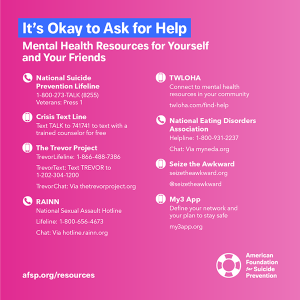Opinion: Men’s mental health overlooked, toxic masculinity huge factor
“Sad man in the streets of San Francisco” by javi.velazquez is licensed under CC BY-NC-SA 2.0
The stigma around men’s mental health has been steadily worsening over the years. It is perceived, thanks to toxic masculinity, that men are less susceptible to mental health issues. By normalizing seeking help and dismantling toxic masculinity, the stigma surrounding men’s mental health can be abolished.
Content warning: This story contains themes of suicide and mental health.
Mental health is generally seen as a taboo topic in society–it goes against that “perfect” facade we are expected to have. Due to the lack of discussion, people suppress their emotions and bottle them up in fear of being deemed an outcast by society.
People are scared to talk about the pernicious damages negative mental health can have on a person. Due to that toxic mindset, people often choose not to talk about mental health.
September is Suicide Prevention Month, a time when many organizations come together to raise mental health awareness. It is the only time that the corporate world bands together to fight the stigma surrounding mental health.
Big-name brands and companies hop on the bandwagon and begin posting on social media about mental health awareness. Do not get me wrong, the companies voicing concerns regarding mental health does plenty of good. The issue is, they only raise awareness during September and remain silent throughout the rest of the year.
With an issue as pressing as mental health, companies should be avidly speaking out to break the stigma year-round. Instead, they only do it one month out of the year so they are not seen as insensitive.
Stigmas surrounding mental health have improved, but not for everyone.
Dictionary.com defines toxic masculinity as “a cultural concept of manliness that glorifies stoicism, strength, virility, and dominance, and that is socially maladaptive or harmful to mental health.”
Looking at the numbers, the suicide rate among men is four times higher than that of women. In the United States alone, roughly nine percent of men suffer from daily depressive and or anxious thoughts and only one in three of those men seek medication.
Mental health is something that affects everybody — it is not gender-specific. Targeting most of the resources toward one gender and completely disregarding everybody else is ignorant and feeds a growing concern — the mental health of men resulting from toxic masculinity.

The concept of toxic masculinity needs to be dismantled. Enforcing artificial character traits onto men will not get society anywhere. If anything, it will move us further back and prohibit us from making any further progress on breaking down current mental health stigmas.
In trying to create the “perfect” male stereotype, society has placed a veil over men’s mental health, obscuring it to the point of insignificance. In order to combat this stigma, resources should be readily available for all genders. There is work to be done here.
Aside from the general stigma around mental health, there is an even bigger stigma around seeking therapy. People tend to think that therapy just confirms that a person is “crazy” or “damaged.” In reality, therapy is one of the best ways to improve one’s mental health.
However, a 2017 study at Regis College shows that women are 50% more likely to seek treatment for mental health issues than men.
Treatment does not just mean therapy. Some find the setting to be suffocating or the cost of services to be too high. There are other alternatives. Journaling, meditation, speaking to someone you trust, or even using a mental health counseling app can provide similar results as therapy.
The importance of someone’s mental health should not be determined by gender — having that mindset just adds fuel to the fire. The best way to combat the mental health stigma against men starts with eradicating toxic masculinity and normalizing seeking help.
Opinions expressed in editorials are those of the writer(s). These views may not represent the adviser, The Prowler, advertisers/sponsors, the Starr’s Mill High School administration or staff , or Fayette County Public Schools as a whole. Please see our FAQs for more information pertaining to the rights of The Prowler’s staff members.




Brandon L Kendall • Oct 22, 2020 at 3:04 pm
Love this article! Thank you so much for addressing this topic, Rachel!